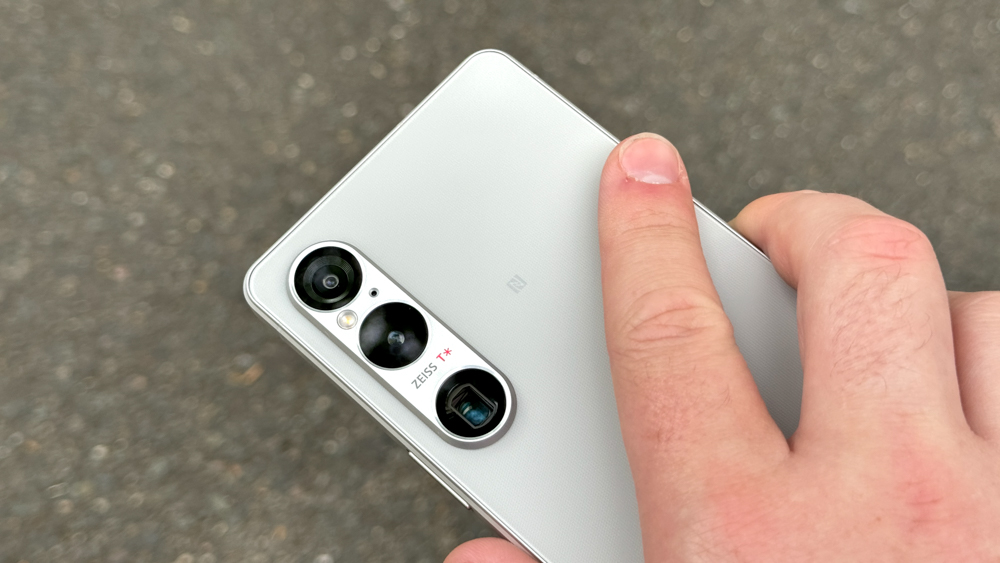
Being conventional can be both a blessing and a curse, which is why the Sony Xperia 1 VI is trying once again to balance what users want from a smartphone and what it thinks they actually need.
The design of Sony's latest flagship phone has taken a big step towards being "normal," both in hardware and software terms. But the phone is still a lot of fun due to its unique photography characteristics and insistence on keeping around old ports alongside excellent durability.
But since it's still expensive, offers limited updates and AI juice, and isn't even on sale in the U.S. this time around, it's still annoyingly hard to find a way to recommend this phone. It's still going to be a out-of-left-field choice for typical phone buyers, and a costly investment for enthusiasts.
Our full Sony Xperia 1 VI review will explain all this in detail. Keep reading for full specs, test results and insights into one of the most peculiar flagship Androids of the year.
Sony Xperia 1 VI: Specs
Sony Xperia 1 VI: Price and availability
The Xperia 1 VI is on sale right now for £1,299 in the U.K, and AU$2,100 in Australia. There's no U.S. availability this year sadly, though if you're set on getting a new Sony phone, and are feeling brave, you could easily buy one from overseas and have it delivered to you.
This price puts the Xperia in line with the Galaxy S24 Ultra and iPhone 15 Pro Max, but the Sony phone is still £100 more expensive than the base models available from Samsung and Apple. Luckily Sony has provided lots of features to justify the high cost, as we'll get into now.
Sony Xperia 1 VI: Design and display
Sony's been refining a unique look for its phones throughout the lifespan of the Xperia. But this year, the frosted glass back and ridged edges you may recognize hide a major change.
Xperias up to now have been equipped with 21:9 displays, designed to show widescreen content at its best. But because most phones center their viewing experience around 16:9 photos and video, this has meant Sony phones have been uncomfortably long and narrow to use under normal circumstances. With the Xperia 1 VI, Sony's decided to join the herd and has gone for a 6.5-inch, 120Hz OLED screen that fits the typical 19.5:9 smartphone profile.
This has meant a reduction in the phone's screen size, and a downgrade to FHD resolution instead of 4K. But perhaps this won't be as offputting to a potential buyer as the old aspect ratio used to. I certainly find it more comfortable to use than previous Xperias but I never minded the extra height on the Xperia 1 V and older versions too much either.
The Xperia's screen still has noticeable bezels though, especially at the top where the selfie camera is housed. This stops the camera from interfering with anything you're looking at, but even iPhone users are going to find the top bezel weirdly prominent and old-fashioned for a modern phone.
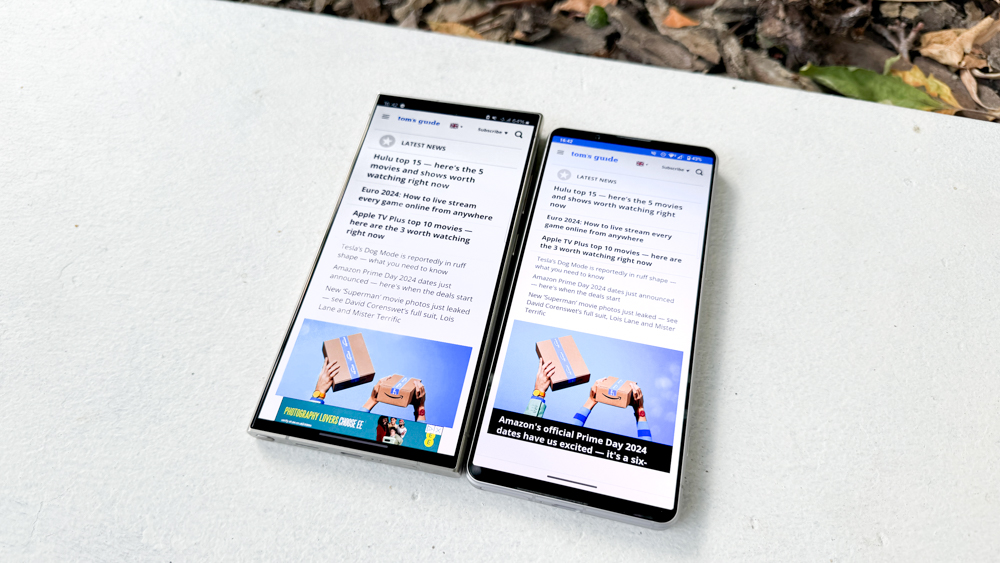
Making use of its technical knowledge in other areas, Sony has given the Xperia a "Powered by Bravia" display set-up to offer AI-adjusted superior color and detail, even at full brightness through its Sunlight Vision feature. And this is a phone that can get quite bright, beating the Galaxy S24 Ultra even with its Extra Brightness setting enabled.
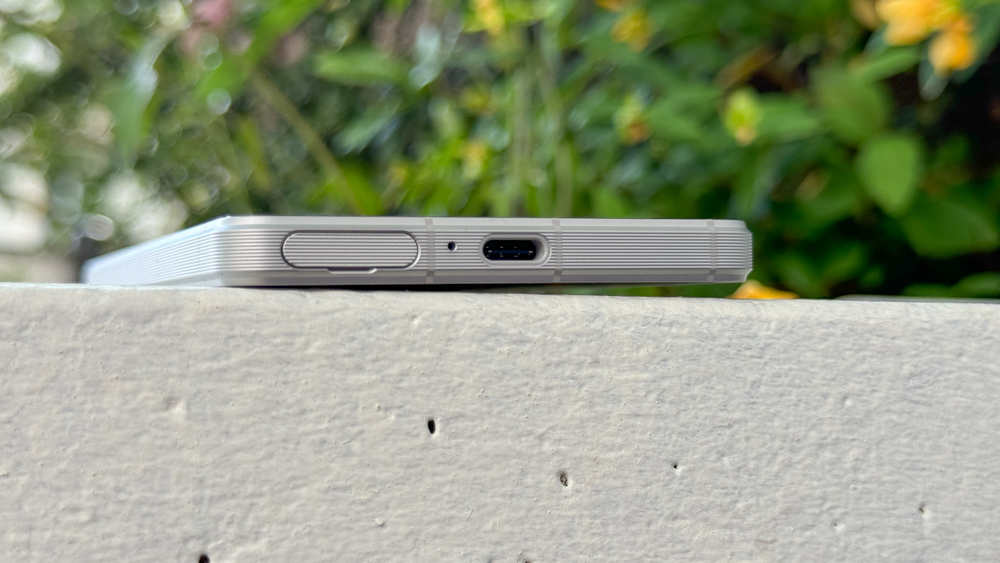
Even with the whole body overhaul of its flagship phone series, Sony's still kept convenient features like a 3.5mm headphone jack, a separate shutter/camera shortcut button and a toolless SIM card tray in place, making it easy to switch between audio accessories, SIM cards and microSD storage when you need to. And despite these prominent holes in the phone's body, the Xperia 1 VI's achieved a double IP65/68 rating to confirm it's safe from both water spray and water immersion. Plus there's Gorilla Glass Victus 2 on the display and standard Gorilla Glass Victus on the back to assure minimal damage in the case of contact with hard or sharp surfaces.
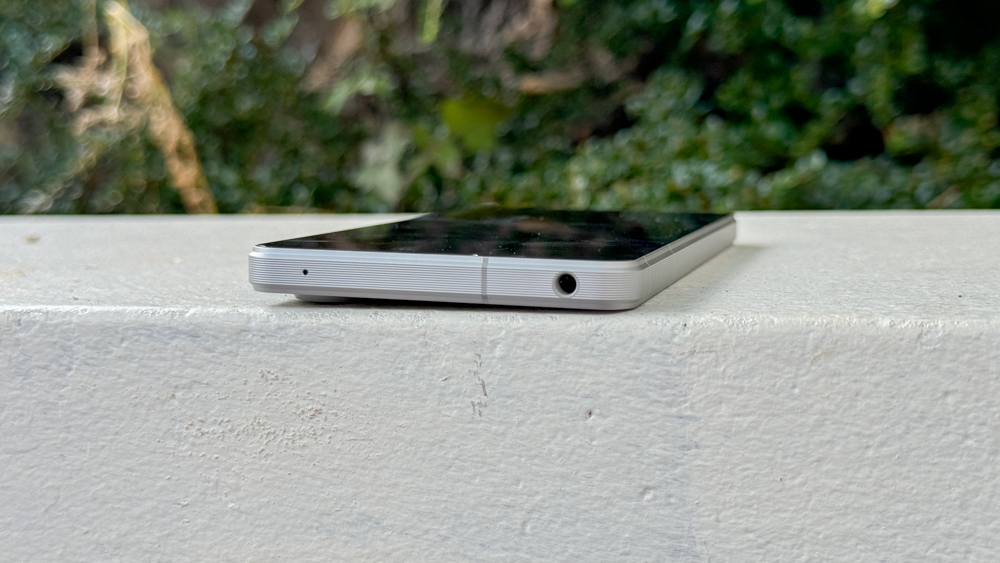
Sony Xperia 1 VI: Cameras
You get a 48MP main camera and 12MP ultra wide and selfie cameras on the Xperia 1 VI, but the star of the show is the 12MP telephoto camera, which comes with a variable zoom between 3.5x and 7.1x magnification. This has always been the party piece of Xperia 1 phones but it’s managed its widest zoom range ever here. But let's see how this all compares to the iPhone 15 Pro Max, one of the best camera phones you can buy right now.
This main camera shot of a pedestrian street in Paddington, is a lot brighter in the Xperia's image (just ignore the speed limit sign, that wasn't lit when I took the iPhone's shot). The iPhone makes up for having darker-looking foliage by giving you better contrast, letting you appreciate all the little lines between the paving bricks, and better view the buildings in the far distance.
I also tried the main camera against the Galaxy S24 Ultra while coming back from a Paris trip via Gare du Nord. This shot across the station's platforms is brightest through the Samsung's lens, especially elements like the ceiling or the empty tracks. But detail-wise, the Xperia holds its own.
Sticking with the S24 Ultra as our comparison phone with an ultrawide photo of a London mews, it's easy to see that the Sony is brighter, with a narrower FOV. The Samsung has a wider lens, which can be a plus or a minus depending on how close you like to get to your subjects. But more importantly for image quality it's got richer colors.
Now let's get into the telephoto cameras. Sony's focusing on the zoom camera's telephoto macro abilities in particular, using the adjustable focus to take extreme close-ups. I tried this against the Galaxy S24 Ultra, using a leaf-shaped garnish in a cocktail as my subject. The S24 Ultra's image is a lot brighter, but the level of detail that the Xperia offers is way higher, particularly at the top where the focus is best.
Getting the Xperia to take this shot required a lot of manual tweaking to make it work though, since there’s no automatic focus option, only a focus peaking highlight that shows what the current center of attention of your subject is. It takes effort to look this good.
Now we've got the Xperia's party piece out of the way, let's take some more traditional zoom shots. We start at 5x, the higher of the S24's two zoom lenses but right in the middle of the Xperia' available zoom range, with this shot of a red London bus. The Xperia's image looks a bit washed out compared to the Galaxy S24 Ultra, and a little fuzzier around details like the bus' destination sign or the road markings and street furniture around it.
Next we have 10x, which the Samsung can manage with lossless digital zoom via its 5x lens, but the Xperia has to manage by cropping in from its maximum 7.5x zoom. This painted pub sign takes on a darker hue in the Sony image, but is both brighter and sharper from the Samsung's.
Increasing the zoom up to 30x, the S24 Ultra becomes even brighter and sharper. It goes to shows that when digital zoom is required, Samsung's extra megapixels outweigh Sony's slightly higher optical zoom level.
We'll close out with a selfie portrait comparison. The Xperia has produced a portrait that's more flatly lit, and with less bokeh, compared to the Galaxy S24 Ultra which gives us a warmer shot with more noticeable bokeh, and more texture to my face and shirt. The Samsung has messed up the cutout around my glasses though, which the less aggressive effect of the Xperia hasn't fallen foul of.
Sony Xperia 1 VI: Performance
Sony’s chosen the Snapdragon 8 Gen 3 paired with 12GB RAM to power the Xperia 1 VI, putting it on roughly equal footing with equivalently expensive Android phones. However, the Sony version of this chip seems undertuned compared to the competition (as well as the iPhone 15 Pro Max and its A17 Pro silicon).
My time playing Call of Duty: Warzone went smoothly enough, with the Xperia keeping up and staying mostly cool with the battle royale game running at max graphics, thanks to its new vapor chamber cooling system. So while you can't really accuse it of wanting for power, the Sony isn't the phone to pick if you need ultimate performance in a pocketable form factor.
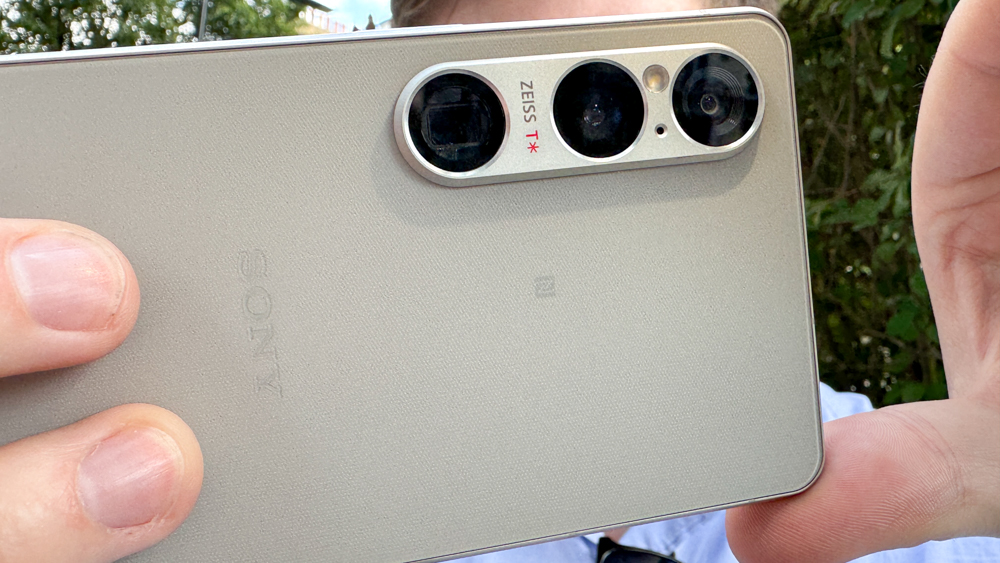
The sole storage variant of 256GB is the bare minimum that you'd hope for in a phone of this price. But fortunately for users, you can insert a microSD card to add up to one and a half terabytes of additional storage. Storage that's easy to remove and swap as needed thanks to the toolless SIM tray where the microSD card lives.
Sony Xperia 1 VI: Battery and charging
There's a 5,000 mAh battery inside the Xperia 1 VI, which drained by an average of 20% in my three-hour YouTube streaming test. That's in the same ballpark as the Galaxy S24 Ultra (which drained by 21%) and the OnePlus 12 (18%), which have the same battery capacity, although the Sony phone is smaller in stature than both. That makes the total capacity more impressive, but also means the smaller display could be helping Sony by being less of a power drain.
Sony doesn't give an official maximum charging speed for the Xperia 1 VI, although it's capable of powering up either with or without cables according to your taste. Using a USB Power Delivery-compatible charger, I was able to fill the Sony up to 28% in 15 minutes, 52% in 30 and fully charge it in 1 hour and 22 minutes, peaking at 25W of power. These speeds would likely be faster with one of Sony's own 30W chargers. But since you don't get one in the box, or even a USB cable for that matter, you're more likely to use a charger you have around the house than the best available one for the Xperia 1 VI.
Sony Xperia 1 VI: Software and special features
Sony's update promise for the Xperia 1 VI is full updates for three years and security updates for four years. That's pretty short for a flagship phone these days, now that Samsung and Google offer seven years of full updates.
The Sony take on Android 14 is lightly modified to match the company's own aesthetics but materially a stock experience. It is also light on AI, since Sony appreciates that creators are likely to want to work manually rather than with generative assistance. It takes a back seat, aiming to help focus in on subjects in front of your camera, estimate how someone moves when recording video and adjust white balance to keep your colors in check. It's not there to do your edits or writing for you, which is a refreshing attitude compared to the rest of the smartphone market.
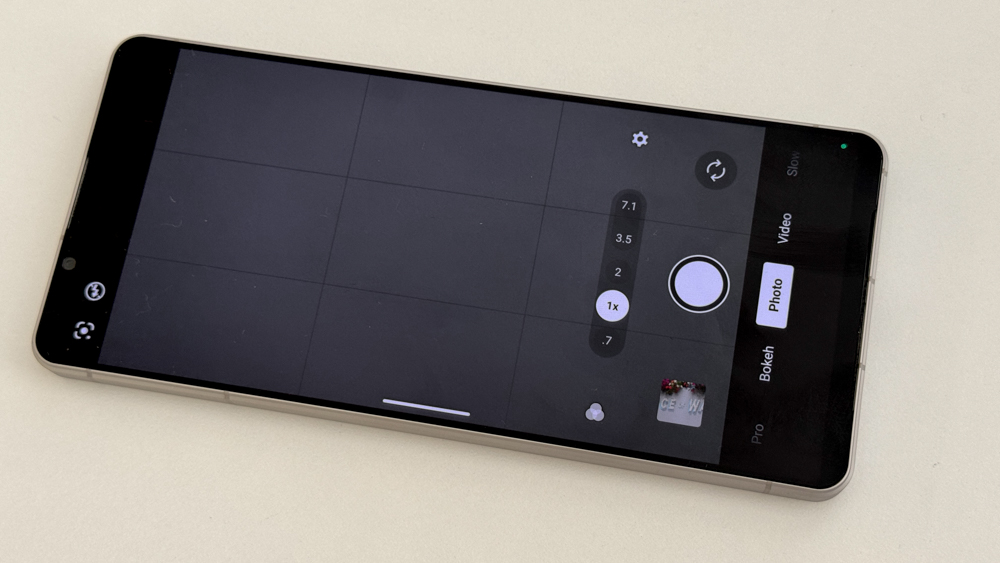
However, that hasn't stopped Sony from automating and simplifying certain aspects, like the camera app. There used to be three separate apps for taking photos and videos on Sony phones, but the Xperia 1 VI introduces a new unified app that looks a lot more typical, at least when set to default mode. Enabling the Pro mode restores all the highly-specific settings and effects for those who want them, but it's now much more straightforward to use the new Xperia in a point-and-shoot style like other top camera phones.
Sony Xperia 1 VI: Verdict
I'd hoped when seeing the specs of the Sony Xperia 1 VI that this would be the model that would let Sony break into the mainstream flagship phone market. But while it's closer to its rival devices than ever, it can't hide its strangeness, for better and for worse.
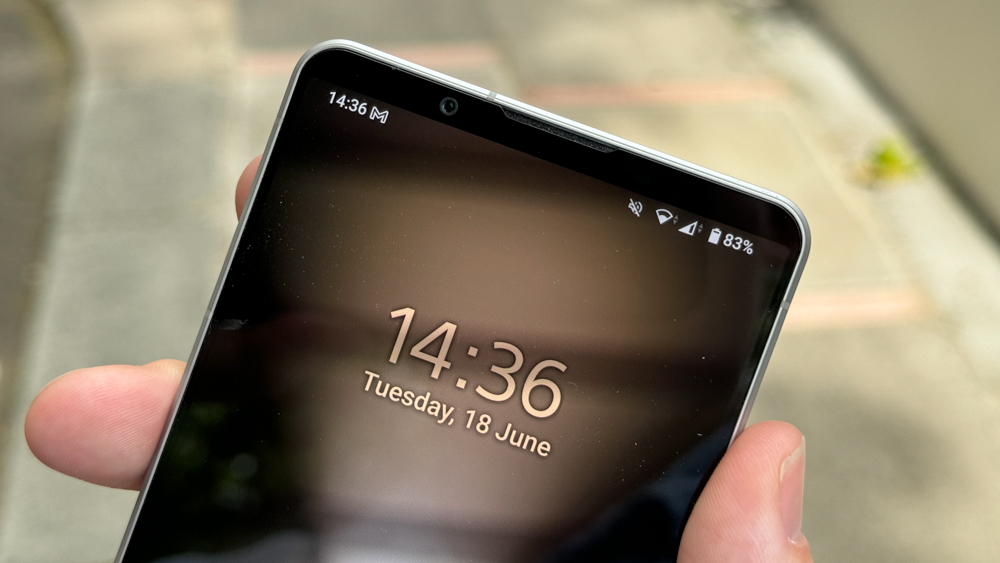
While I miss older Xperia's narrow screens, the reworked display is great to use thanks to its more familiar shape and impressive brightness. And that helps bring the remaining Sony-specific features, like the adjustable telephoto camera, easy-access SIM/microSD tray and headphone jack, into focus. However unless you plan to use these elements a whole lot, you're likely to end up overpaying for a phone that isn't quite as well rounded as the rest of the pack.
At this price point, you have your pick of the whole smartphone market, excluding a few foldable phones. The Galaxy S24 Ultra or Pixel 8 Pro, as well as being easier to find and a bit cheaper, are also great camera phones with excellent displays. If you prioritize performance over photos, you could look at the mighty OnePlus 12 or maybe even the Honor Magic6 Pro if you can buy it where you live.
The typical Sony user remains the same for the Xperia 1 VI as it did previously - a photo-focused user who wants their flagship staple features attached to a device that gives them more creative freedom than others. The difference this time is that Sony’s made a few more concessions in favor of general usability, so if you had doubts that scared you away from an older Xperia 1, it may be time to look again







